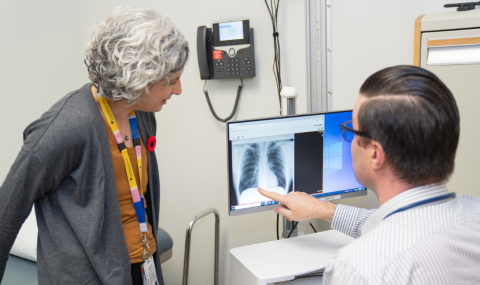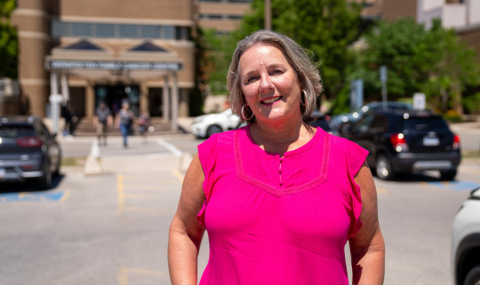Psychology Definitions
What is Psychology?
Psychology is the scientific study of the mind and human behaviour. This can include aspects as diverse as behaviour, thoughts, emotions, brain functioning, sensory functioning, relationships, attitudes, and almost anything else that has to do with being a person in the world.
What is Clinical Psychology?
Clinical Psychology is the application of the scientific understanding of Psychology to help people manage and overcome hardships. These hardships usually relate to mental health challenges but might also include dealing with grief and adjustment; increasing productivity; changing habits; strengthening relationships; coping with changes in physical health, ability, or identity; or managing mood in the face of trauma or other difficult circumstances. For more information about the role of a Clinical Psychologist, view the 'What does a Clinical Psychologist do?' section below.
What is Clinical Neuropsychology?
Clinical Neuropsychology is a specialty of Clinical Psychology that focuses on the interaction between Psychology (the scientific study of the mind), Cognitive Neuroscience (how thoughts and emotions work in the brain), and Neurology (the physical structure of the brain and the impact of brain damage). Clinical neuropsychology is focused on understanding how brain functioning may impact behaviour and vice versa. Examples may be determining how a stroke might impact someone, whether someone has dementia, or if a brain injury is expected to cause problems at work. Clinical Neuropsychology may also be applied to help people train their thinking skills after they have been affected by an illness/injury. For more information about the role of a Clinical Neuropsychologist, click the 'What does a Clinical Neuropsychologist do?' section below.
Psychotherapy, Counseling & Controlled Acts
What is Psychotherapy?
Psychotherapy is a general term that refers to talk-based therapy. Generally, in psychotherapy, a therapist and client enter a therapeutic relationship where they work together to bring about positive change in the client’s thinking, feelings, behaviour, social functioning, or wellbeing.
In Ontario, there are specific circumstances when psychotherapy is a “controlled act”. A controlled act is defined as a health care activity “which may produce harm to a patient if not performed by a qualified practitioner.” The controlled act of psychotherapy is defined as “treating, by means of psychotherapy technique, delivered through a therapeutic relationship, an individual’s serious disorder of thought, cognition, mood, emotional regulation, perception or memory that may seriously impair the individual’s judgement, insight, behaviour, communication or social functioning.”
The College of Psychologists is one of six professions in Ontario that have members authorized to perform the controlled act of psychotherapy. Only those licensed to perform this type of psychotherapy are permitted to use the term “Psychotherapist” in Ontario. Of these, only Psychologists and Physicians are authorized to perform the controlled act of diagnosing a mental illness.
What is Counselling?
Counselling also refers to talk-based therapy, but it may look different from some forms of psychotherapy. Importantly, counselling is not a controlled act in Ontario.
Counselling refers to the application of a therapeutic relationship to facilitate “self-knowledge, emotional acceptance and growth, and the optimal development of personal resources”. The goal of counselling has less to do with managing mental illness and more to do with reaching one’s personal goals and overcoming life challenges that are not necessarily tied to mental health difficulties.
Psychology Roles & Responsibilities
What does a Clinical Psychologist do?
A Clinical Psychologist is a mental health provider who specializes in the assessment of mental health challenges and the provision of psychotherapeutic treatment. With few exceptions, Clinical Psychologists in Ontario must complete a Doctoral program (Ph.D.) or equivalent (e.g., Psy.D.) and a residency, though many have additional education and training. A Clinical Psychologist can diagnose mental health disorders and can conduct psychotherapy (talk therapy) to treat serious mental health disorders (e.g., depression), However, they cannot prescribe medications.
Clinical Psychologists work with people who have a wide variety of emotional, physical, and mental health challenges. They often specialize in one or more psychotherapeutic approaches. Many Clinical Psychologists may also specialize in working with people who have specific backgrounds, challenges, or experiences. The Clinical Psychologist’s task is to help patients understand their challenges more deeply and move beyond them to live a fulfilling and healthy life. Some Clinical Psychologists may also teach or do research.
What does a Clinical Neuropsychologist do?
A Clinical Neuropsychologist is a Clinical Psychologist who specializes in neuropsychology (brain-behaviour relationships). In Ontario, Clinical Neuropsychologists must complete a Doctoral program (Ph.D., Psy.D.) and a residency, though many have additional education and training. A Clinical Neuropsychologist cannot prescribe medications.
Clinical Neuropsychologists work with people who have a wide variety of medical and mental health challenges. They often specialize in the assessment of thinking abilities (e.g., strengths and difficulties in memory, attention, problem-solving, etc.). The Clinical Neuropsychologist’s goal is to understand all the parts of a person, determine what may be impacting that person’s thinking, and clarify how their thinking skills might influence their day-to-day activities. To do this, Clinical Neuropsychologists will interview people, review their records and, if granted permission, may speak with family members. Then, they plan a series of tests that will help answer the referral question.
Some Clinical Neuropsychologists may also provide psychotherapy services, cognitive training/rehabilitation, or other forms of treatment. Like any Clinical Psychologist, some Clinical Neuropsychologists may also teach or engage in research.
What does a Psychological Associate do?
A Psychological Associate provides similar services as Clinical Psychologists. Like Clinical Psychologist, a Psychological Associate might specialize in a certain area or may focus on working with specific groups of people.
The main difference between a Clinical Psychologist and a Psychological Associate is their educational journey. Where Clinical Psychologists have completed a Doctoral program (Ph.D.) and a residency, Psychological Associates have instead completed a Master’s program (M.A., M.Sc.) and four or more years of training in the field. Clinical Psychologists and Psychological Associates are both registered and are considered to have equivalent skills.
What does a Psychometrist do?
Psychometrists work closely with Neuropsychologists and Psychologists. Psychometrists must hold a Bachelor’s Degree (B.A. or B.Sc.), though some have more education and training.
Under the supervision of a Clinical Neuropsychologist or Psychologist, Psychometrists administer neuropsychological and psychological tests to patients. After testing is complete, the Psychometrist scores the tests and questionnaires. These are provided to the Clinical Neuropsychologist or Psychologist who interprets the results and creates a final report.
Other Mental Health Professions
On some hospital teams, a number of different mental health professionals provide support to patients. At times it can be confusing to keep them all straight. Below are some descriptions of other mental health professions that are often confused with Psychologists.
What does a Social Worker do?
Social Workers work in various roles both inside and outside health care. Social Workers have Bachelor's or Master's level training in Social Work. At LHSC, Social Workers have a Master’s in Social Work (M.S.W.).
In health settings, Social Workers may provide a number of services including assessment of the people’s psychosocial needs (e.g., housing, financial support, safety). They excel in connecting people with appropriate community resources and advocating for their access to those resources. Social Workers have training in counselling and/or psychotherapy and may support people in coping with their illness/diagnosis, adjusting to new circumstances, or managing other hardships.
What does a Psychiatrist do?
A Psychiatrist is a physician who has completed a Medical Degree (M.D.) and a residency specializing in psychiatry (the medical treatment of mental illness). A Psychiatrist may prescribe medications.
Psychiatrists may perform psychiatric exams to determine the nature of a person’s mental health challenges. Often, Psychiatrists will prescribe or adjust medications that help patients better manage their mental health difficulties. Some Psychiatrists may also provide psychotherapy; however, it is common for patients to work with a Psychiatrist to manage the medication part of their treatment and a Clinical Psychologist to manage the psychotherapy part of their treatment.
Essentially, Psychiatrists specialize in the treatment of the medical parts of mental health, while Clinical Psychologists specialize in the psychological/emotional part of mental health.
What does a Neurologist do?
A Neurologist is a physician who has completed a Medical Degree (M.D.) and a residency specializing in neurology (the systems and disorders of the brain, spinal cord, and nervous system). A Neurologist may prescribe medications.
Neurologists may perform neurological exams to make sure people’s senses and bodies are working as they should. They occasionally do some cognitive tests as well. Essentially, Neurologists specialize in the brain’s hardware. Clinical Neuropsychologists specialize in understanding how the brain’s hardware and software affect one another.
What does an Occupational Therapist do?
An Occupational Therapist is a clinician who has completed a master's degree (M.Sc.) and has completed a number of supervised hours of practice. They specialize in assessing functioning at home and work and implementing strategies to help people return to their daily activities.
Occupational Therapists may administer some simple cognitive tests, but their unique expertise lies in identifying difficulties in daily function. Often, they will visit homes and workplaces to determine areas that are challenging and why.
They may also work with Clinical Neuropsychologists, physiotherapists, and others to create plans for returning to work or regular daily tasks. They are most often involved in rehabilitation settings and services. On occasion, an Occupational Therapist may provide psychotherapy, though this is a separate specialization
What does a Counsellor do?
“Counsellor” is not a regulated title. As a result, a number of different service providers with different educational backgrounds and training may call themselves Counsellors. Some may have specifically studied counselling at the graduate level.
Counsellors may provide helpful information, advice, encouragement, instruction, and emotional support. Counsellors do not provide treatment for mental illness; however, they may provide support to these individuals. Counsellors may have expertise in helping people with issues related to life stress, transition and adjustment, grief, and relationship issues.
What does a Psychotherapist do?
“Psychotherapist” refers to a role or skillset more than a specific profession. In Ontario, members of a number of professions (including Psychology) may be licensed to provide psychotherapy with specialized training.
Psychotherapists may work with individuals experiencing difficulties with their thinking, mood, or behaviour. While some licensed Psychotherapists may call themselves a Psychotherapist, others may simply refer to themselves by their official professional title (e.g., “Social Worker”) and provide psychotherapeutic services under that banner.



